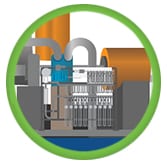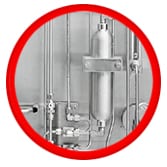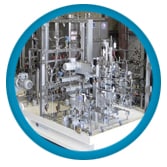How to Avoid FPSO Vessel Fluid System Construction Issues
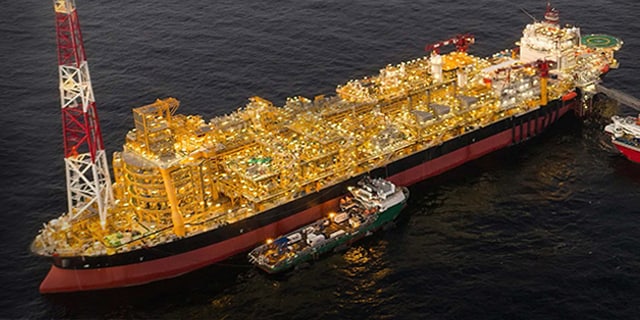
Tackling the Complexities of Floating Production Storage and Offloading (FPSO) Construction
Tommy Jamail, Senior Regional Construction Manager, Asia Pacific
Barry Rowe-Platts, Technical Lead, Engineering Services
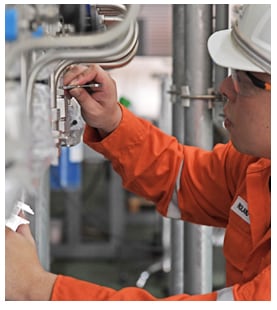
While providing the same functionality as fixed oil and gas platforms, FPSO vessels are unique in their ability to relocate as new opportunities emerge and economic conditions and geopolitics shift. FPSO vessel deployments are expected to rise in the coming years—Fortune Business Insights expects the FPSO vessel market to grow by more than 14% by 2027.1
Successful construction and maintenance of FPSO vessels require a few key considerations, particularly as they pertain to the dozens of critical small-bore fluid system applications and packages that contribute to long-term, reliable operation.
FPSO Construction and Maintenance Considerations Related to Fluid Systems
FPSO vessels are susceptible to challenges both common to other offshore upstream oil and gas applications and unique to these vessels. During and leading up to vessel construction, adhering to tight construction schedules is important for everyone involved to ensure that building an FPSO vessel remains more economically advantageous than building a fixed platform. Delays in construction can hurt an engineering, procurement, and construction (EPC) company or package vendor’s reputation, but it’s most problematic for vessel owners/operators for whom downtime is extremely expensive. While safety is a vessel owner’s primary concern, they also need maximize production, getting vessels back out to sea quickly.
FPSO construction and maintenance-related delays can be caused for a variety of reasons.
 Global logistics and communication issues:
Global logistics and communication issues:
Construction of a new FPSO vessel or retrofitting an existing hull with the necessary equipment typically involves the coordination of numerous entities. For example, while FPSOs are being commissioned around the world, most hulls are constructed or supplied from the Asia-Pacific region—requiring special coordination, shipment, and delivery to the location where the FPSO will be built or where fluid systems will be integrated and commissioned. Additionally, modern oil and gas applications and packages have become increasingly specialized. A large project like an FPSO may involve several EPCs from different countries to design and engineer equipment for the dozens of critical applications found on board. Coordination among EPC firms and package vendors starting prior to the front-end engineering and design (pre-FEED) stage and continuing through commissioning is critical, but can represent a significant challenge.
- Solution: Working with suppliers who not only have experience with FPSO application design, but who have a local presence and people who understand local cultures, languages, and regulations, can help owners/operators and EPCs navigate some of these complexities. Some fluid system suppliers have dedicated global construction teams with rich experience not only in guiding product selection and fluid system engineering, but in capital projects management and logistics support.
Procurement challenges related to fluid system product availability:
Because offshore fluid systems are especially susceptible to corrosion and may have elevated pressure requirements, availability of specialized parts built with exotic alloys can be limited. This can be a problem during large-scale construction projects, but also during vessel operation given how isolated oil fields can be, making it difficult to acquire many replacement parts. Special consideration may also need to be made to adhere to industry compliance standards—making sure FPSO vessels are designed and operated with the goal of achieving net-zero environmental impact, for instance.
- Solution: Owner/operators and EPCs should engage fluid system component providers early (pre-FEED phase, if possible) to find the right parts with appropriate availability to adhere to capital project timelines. Suppliers can work with them to not only plan for the procurement of products rated to perform in their operating environment. Some can also make asset registries reflecting every product on the vessel so that it’s easier to ensure the right components are available to maintain and repair fluid systems.
System reliability issues and premature failure due to shipyard practices:
Whether during initial vessel construction or dry dock maintenance and repair activities, improper fluid system installation practices can quickly cause problems related to maintenance, safety, and production during the lifespan of an FPSO vessel. Whether or not sound design fundamentals are followed related to material selection, tube routing, support, and installation can make the difference between a system requiring constant maintenance, repair, and replacement and one that does not. Personnel lacking experience or training can introduce installation errors regardless of how well a system is designed. These issues can multiply across large installations and lead to extensive problems during commissioning or operations.
During construction, for example, contractors may expose tubing and piping to carbon contamination, either directly via hot sparks from welding or grinding operations or indirectly via airborne debris from other cutting or sandblasting work. Tarpaulins or fire blankets are sometimes used to cover stainless steel fluid systems during these operations, but these coverings can melt, be removed by others working on the site, or become a cause of contamination if they collect water or other particles. This is problematic because without sufficient protection and preservation methods, this contamination can cause significant corrosion issues when stainless steel is exposed to the harsh operating environment, resulting in reduced operational life, increased maintenance needs, and potential safety concerns if left undetected.
While carbon contamination damage may not be immediately obvious, once exposed to sea air and water, the fluid systems will quickly corrode. We have seen this error lead to massive monetary losses when vessels had to be redocked after long journeys to and from resource fields, kilometers of tubing had to be replaced, workers had to be housed for extended timeframes, and trust with customers was damaged while millions of dollars’ worth of oil production was being lost every day over the course of months of rework activities.
- Solution: Issues like these can be prevented by relying on good design fundamentals, quality products, installation training, and professional oversight during critical phases of installation and commissioning. Small-bore tubing system specialists can help contractors with limited tubing system installation knowledge increase their competency and avoid mistakes. Investing in fluid system engineering services not only helps prevent issues from arising once a vessel has set sail but also minimizes the likelihood of project timelines being jeopardized at the dry dock.
Challenges related to FPSO vessel fluid systems are not confined to vessel design and construction. Critical on-board fluid systems are expected to deliver safe and reliable performance while FPSO vessels may be at sea for more than 20 years between dry dock sessions.
Maintenance and repair challenges during offshore operation and sailing:
While efforts are made to keep major maintenance activities limited to the dry dock and to minimize minor maintenance in the meantime, fluid system issues must sometimes be detected and addressed during long service period. With bed space at a premium and shore often a long helicopter ride away, however, expertise in the maintenance and troubleshooting of small-bore tubing systems if often limited onboard. When the vessel is in transit, otherwise overlooked problems can become apparent, as well. For example, we have seen stress cracking corrosion cause the frames holding critical equipment to break while FPSO vessels were sailing, leading to an urgent need for repairs, but a lack of knowledge to get them completed effectively once the vessel was docked. These unforeseen issues can cause unexpected scope growth during a busy maintenance schedule, resulting in cost overruns and delays.
- Solution: FPSO vessel owner/operators should understand what small-bore tubing system-related knowledge gaps exist within offshore crews and consider bringing in specialists to evaluate critical fluid systems either while the vessel is offshore or during dry dock sessions. For example, Swagelok field engineers often help crews detect the root cause of fluid system problems, train operations teams to more effectively detect and prevent leaks, and provide other solutions to discovered challenges. These solutions can range from consultation on design, product selection, and implementation to building fully tested fluid system panels that replace damaged assemblies or improve the effectiveness of onboard processes—from representative fluid sampling to rotating equipment function.
 FPSO Construction Considerations for Critical Applications
FPSO Construction Considerations for Critical Applications
Importantly, there is no one-size fits-all solution for many critical applications and packages on an FPSO vessel. Designers must consider a range of different needs, including factors such as:
- Reservoir characteristics
- FPSO motion
- Storage capacity and hull size
- Choice of export system
- Single or twin production trains
- Decommissioning and potential redeployment
While it is important for all onboard systems to operate reliably once an FPSO is at sea, there are a few highly critical applications that owner/operators should pay special attention to:
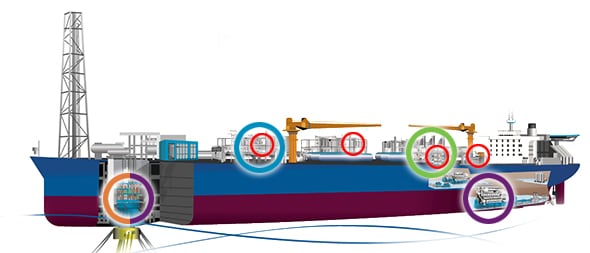
Process and Analytical Instrumentation. System design can pose a significant challenge at the project’s outset. The right expertise is not always readily available to make product, material, and design choices that lead to efficient, effective analytical systems. Additionally, substandard installation during hookup and commissioning can drive up project lead times and result in leakage, emissions, and safety concerns. Onsite consultation with fluid systems providers may be able to help overcome some of these challenges.
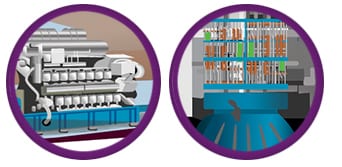
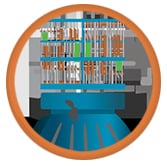
Sampling Systems. Sample collection is not always an intuitive process, and system design requires extensive technical knowledge, which can make it difficult for personnel to consistently follow best practices. Sampling systems should be properly designed to ensure representative sampling, safety, and standardization, helping operators maintain chain of custody, compliance, and proper process control.
Chemical Injection (CI) Units. CI units should maintain highly accurate and repeatable chemical dosage into the production well to maintain reliable production. Leak-tight performance is essential to protect personnel and the environment, and any form of downtime can result in significant production losses. A typical CI system may require hundreds of individual connections.
For applications like these, it is important to remember that not all tubes, fittings, and valves are created equal. Specifying fluid system components—ideally, from a single supplier—that are designed to maintain leak-tight performance can make an impact on long-term performance. In some instances, it is also worth considering higher-quality alloys to better resist corrosion in the harsh oceanic environment where an FPSO operates. The right fluid system supplier’s materials science team can shed light on what alloys will best suit the vessel’s operating conditions.
 Working with the Right Suppliers for FPSO Construction Projects
Working with the Right Suppliers for FPSO Construction Projects
The right fluid system solutions provider will not only allow FPSO vessel owners to single-source the small-bore tubing system components they need but can also provide advice on what products and material compositions will provide leak-tight operation long-term and will be available when needed. They should also be able to mobilize resources across the globe to holistically support international FPSO vessel construction projects in a timely manner.
The right partners may also be able to assist with specifications, recommend efficiencies, and help identify cost-saving configurations for certain applications and packages. As the project proceeds, a collaborative supplier should also be able to assist in managing timelines and logistical complexities to help maintain job site inventory and product availability throughout the project for a more predictable schedule, clearing the way for on-time completion.
If you are involved in small-bore fluid system-related planning for FPSO vessels, before you next project, consider: “Are there ways in which we could be working more efficiently or improving the effectiveness of our systems?” If you suspect the answer is “yes,” reach out to local specialists to discuss opportunities to work differently and achieve more.
1FPSO Market Size, Share, Growth & Industry Analysis,” Fortune Business Insights
Related Articles
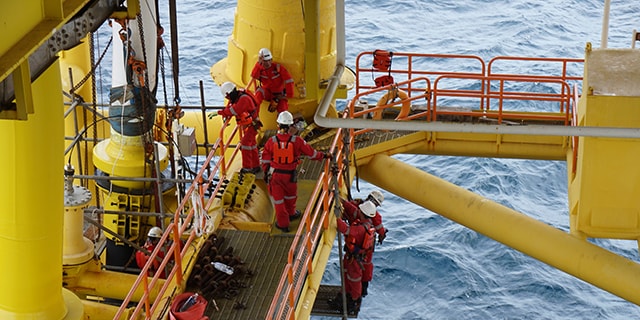
Ensuring Reliable Deepwater Well Operations with Custom Solutions
As depths get deeper and pressures grow higher, deepwater oil wells demand the ultimate in fluid system performance. Learn why a major oil well operator has trusted Swagelok for high-quality, customized solutions since 2013.
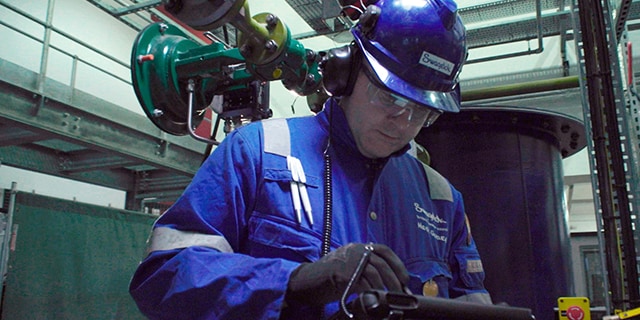
3 Reasons to Audit Your Offshore Fluid System
Evaluation and advisory services for your offshore platform can reveal hidden leaks or other potential safety and performance issues.
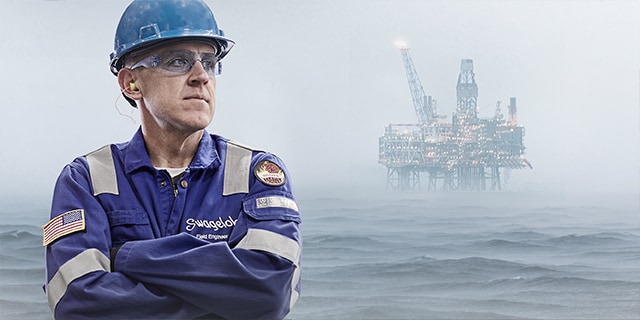
How Training Can Minimize Risk on Oil and Gas Platforms
Proper training on critical fluid system activities is important on oil and gas platforms. Learn how the right training can help prevent accidents.



